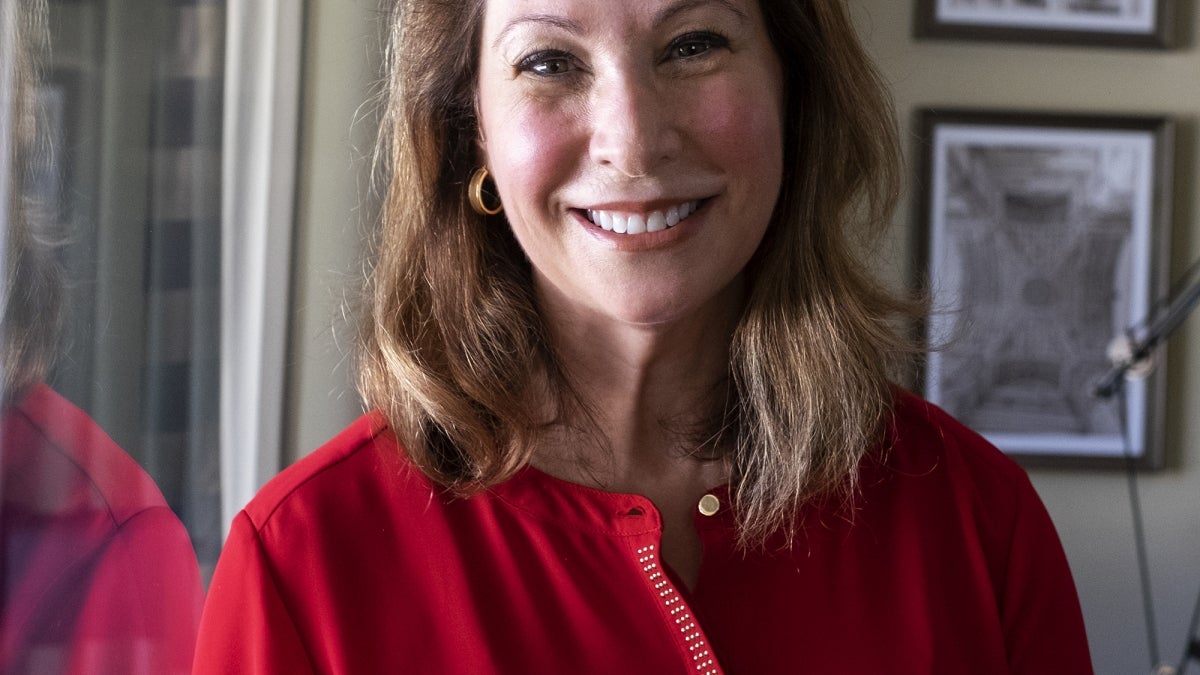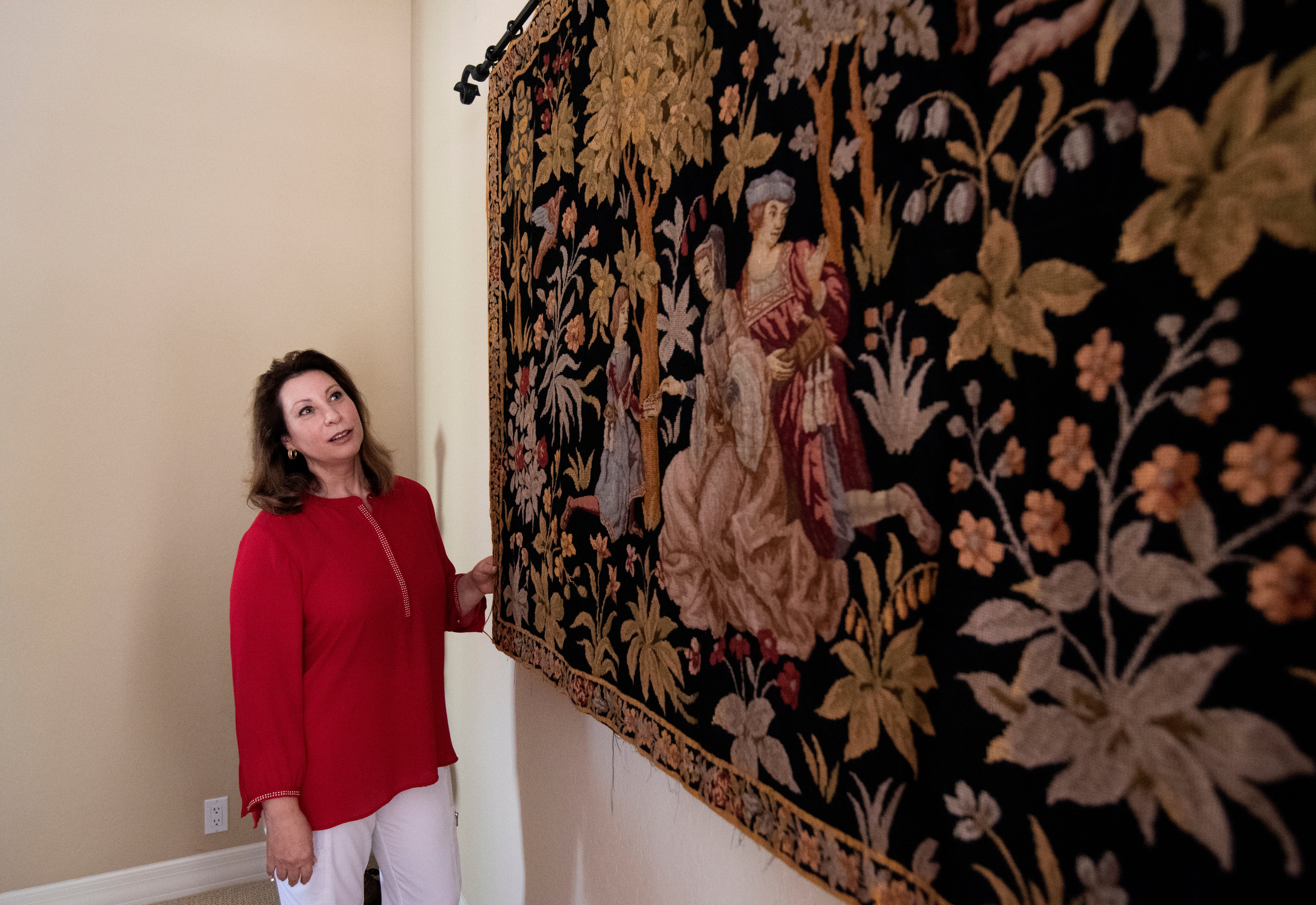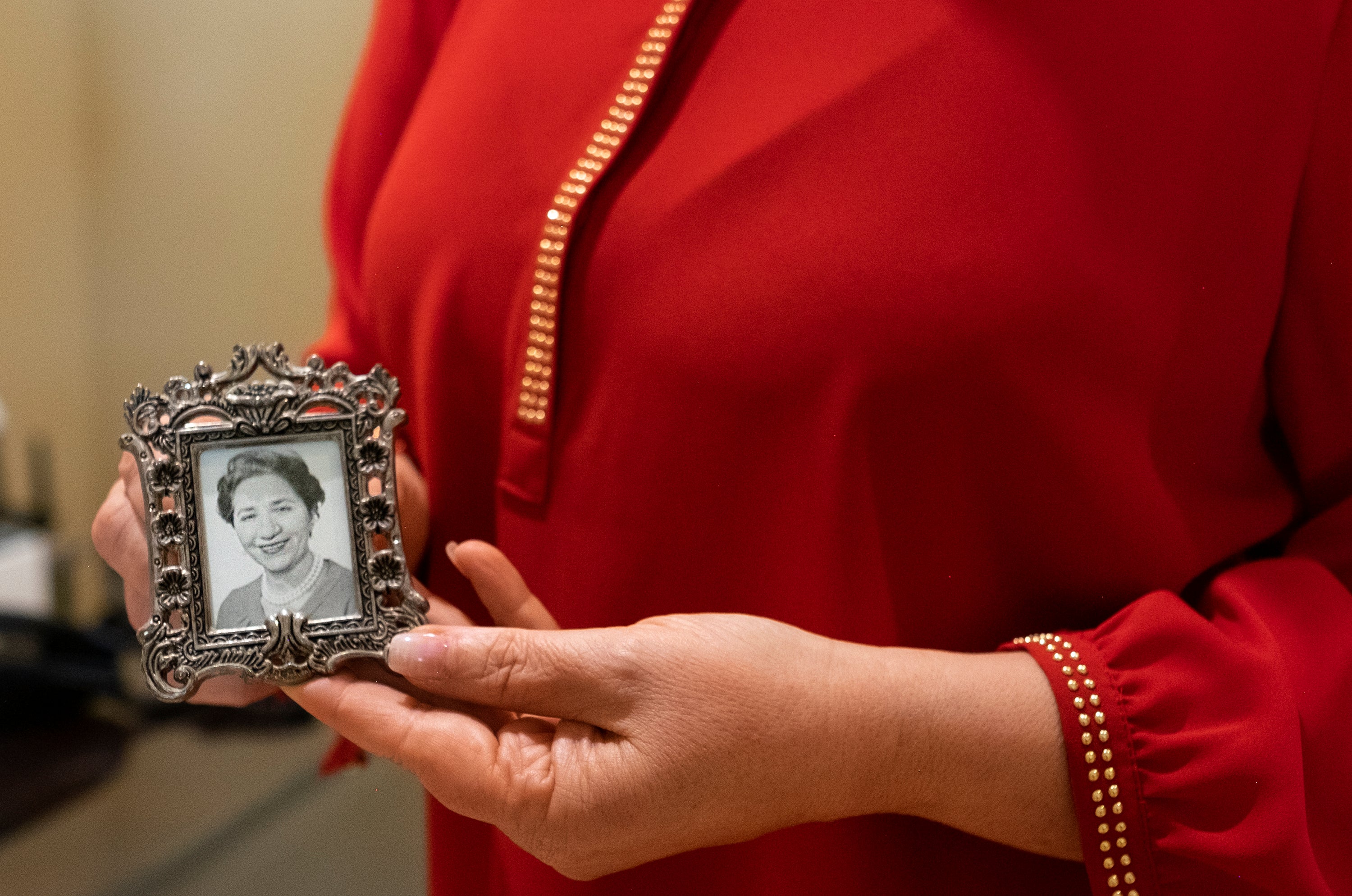Ramona Melikian envisions a new era of global engagement at ASU's Melikian Center

Ramona Melikian will take the helm as president of the Melikian Center's advisory board this December. Photo by Alisa Reznick
Ramona Melikian was born into a global family.
Her grandparents were Armenians uprooted by the 1915 Armenian Genocide who fled to Russia, Iran and finally, New York. Her parents, Gregory and Emma Melikian, married in New York and came to Arizona with legacies of their own.
Gregory is a World War II veteran famous for being the radio operator who sent the coded message announcing Germany’s surrender to the world. He and Emma were active in civic and cultural work while raising Ramona and her three brothers in Phoenix.
Ramona said at first her international background made her feel like an outsider. But as she got older, she began to see it as an opportunity.
“Living in Arizona was really a cultural transition for us; we were a family of immigrants with this crazy Armenian food that my friends didn’t recognize, sometimes it was really challenging feeling like you weren’t like all the other kids,” she said. “I didn’t know then, but it turned out to be great training for us to really see the importance of cultural diversity and understanding."
Ramona honed that sentiment as an adult, working as a corporate programs coordinator at the Council On Foreign Relations in New York and moving into consulting for Fortune Global 500 companies in California.
Back in Arizona, her parents sought to help a new generation engage with the world at Arizona State University. They created the Melikian Fund to support Armenian language and culture studies in 2001. Five years later, The College of Liberal Arts and Sciences’ Russian and East European Studies Center was renamed after the family in recognition of a $1 million contribution they put toward the center’s growth.
Over a decade later, the Melikian Center for Russian, Eurasian and East European Studies offers language and culture courses in lesser-taught dialects including Albanian, Macedonian and Armenian through its internationally recognized Critical Languages Institute. It hosts some 140 students, conducts language programs with ASU ROTC and serves as a research platform for scholars from around the world.
Ramona returned from California to Arizona in 2017 and now serves as the president-elect of the center’s advisory board. She sees the role as a chance to expand the center’s reach, while preserving her own family history.
Ramona shows a wall tapestry her family collected while spending time in Europe. Photo by Alisa Reznick
“The Council on Foreign Relations offered a wonderful forum to see dignitaries coming together to discuss foreign policy and share their culture with the hopes of achieving global understanding — I think the Melikian Center offers a similar opportunity by bringing world scholars to Arizona and training future dignitaries,” she said. “For me personally, it’s a way to honor my ancestors by keeping their culture and language alive as well as others on the verge of extinction.”
Ramona answered a few questions about the center’s legacy and its next phase of global engagement below.
Question: Why has it been important for your family to be involved with the center?
Answer: Our family has been a part of the Arizona community for over 50 years, so partnering with ASU was a natural extension. ASU approached my parents for involvement in 2006, which also happened to be the year the matriarch of our family passed away at age 100. That may have been the impetus for our family to create a legacy for the Melikian name and also support our community at the same time.
But the Melikian legacy extends beyond the boundaries of our own family. We want to create an atmosphere in which all Melikian Center associates are part of one big family working together with ASU to propel the mission of both the center and the university as a whole.
Ramona Melikian shows a photo of her paternal grandmother, who passed away at the age of 100, just before the Melikian Center was first named in 2006. Photo by Alisa Reznick
Q: What have been some center milestones over the years?
A: Keith Brown joined the center as its new director in 2017, and Irina Levin became the new director of the Critical Languages Institute this year. Over the last several years the languages we offer have also changed and increased. Every generation of leadership brings new and innovative ideas that propel it to the next level of quality research and programs. We’re just scratching the surface of our potential.
Q: What are your goals as incoming president of the advisory board?
A: One of my main goals will be to harvest and utilize the knowledge and experience of our 32 distinguished board members by offering them opportunities in which to contribute to their areas of interest.
We also have over 40 faculty affiliates working on research projects who are available for expert commentary on a wide variety of global issues. So another goal is to become a go-to resource for the media to get timely and thoughtful stories on all things Russian, Eurasian and East European.
Q: What’s in store for the center’s future?
A: We see ourselves as creating a family of students. In line with President Michael Crow’s vision for ASU, we aim to create meaningful change in the lives of students going through our programs. In turn, they’ll go on to leave their mark on the world and become ambassadors for ASU.
I believe both my family and ASU are committed to increasing the center’s visibility. And with the university’s expansion to Washington, D.C., Los Angeles and perhaps beyond, we are headed for even greater global engagement.
In fact, on a recent trip to Prague, I saw a plaque with New York University’s logo and thought to myself that there is nothing stopping ASU from international expansion, too. I look forward to the day when I’m walking down a beautiful, historic street in a Russian, Eurasian or East European city and see a plaque with the Melikian Center’s logo.
More Local, national and global affairs
ASU named Fulbright HSI Leader for third year
For the third year in a row, Arizona State University has been named as a Fulbright HSI (Hispanic-Serving Institution) Leader.The…

ASU program prepares Tucson government employees to serve communities more effectively
Up-and-coming local government leaders in Tucson say an Arizona State University development program for municipal and county…

ASU selected to support DOD Irregular Warfare Center
Arizona State University has been selected to work closely with the U.S. Department of Defense to provide reputable academic…

